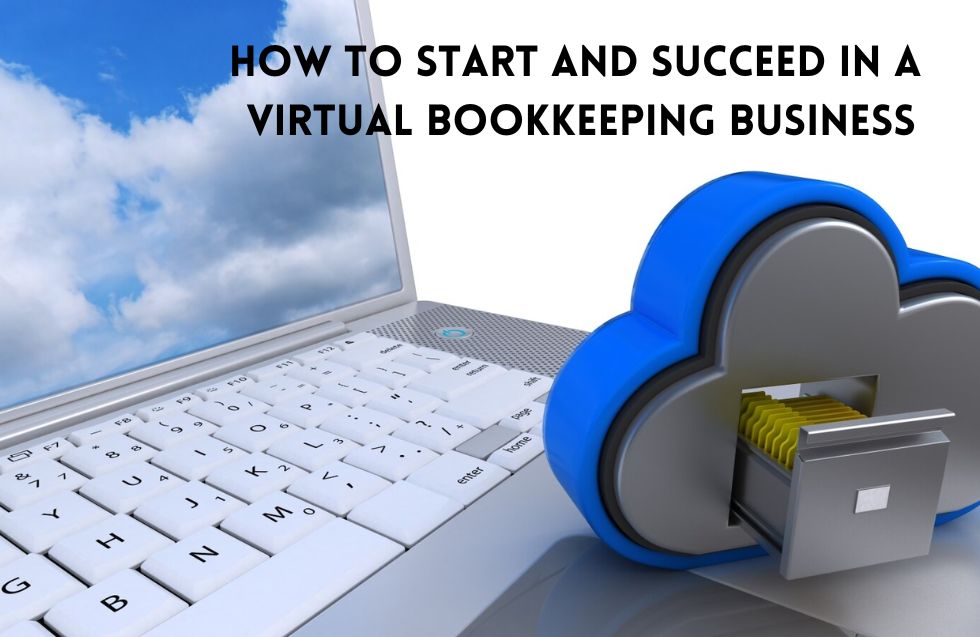In today’s digital age, businesses are moving online, and financial management is no exception. Virtual bookkeeping has emerged as a cost-effective, efficient solution for businesses to manage their finances remotely. Whether you’re an experienced bookkeeper or someone looking to enter this thriving market, starting a virtual bookkeeping business offers immense potential.
What Is Virtual Bookkeeping?
Virtual bookkeeping involves managing financial records for clients remotely using cloud-based software. As a virtual bookkeeper, you handle tasks such as recording transactions, reconciling accounts, preparing financial statements, and ensuring compliance with tax regulations—all from the comfort of your home or office.
Why Start a Virtual Bookkeeping Business?
- Flexibility: Work from anywhere with an internet connection.
- Cost Savings: Eliminate overhead costs like office rent.
- Growing Demand: Small and medium-sized businesses increasingly seek remote financial services.
- Scalability: Easily expand your client base without geographical limitations.
Steps to Launch Your Virtual Bookkeeping Business
1. Assess Your Skills and Qualifications
Bookkeeping requires a strong understanding of accounting principles, attention to detail, and proficiency with financial software. If you lack formal training, consider obtaining certifications such as:
- QuickBooks Certified User
- Certified Bookkeeper (CB) through the American Institute of Professional Bookkeepers (AIPB)
- Xero Advisor Certification
2. Choose Your Niche
Specializing in a specific industry can set you apart. For example, you could focus on:
- E-commerce businesses
- Nonprofits
- Freelancers and solopreneurs
- Healthcare practices
3. Invest in the Right Tools
Equipping your business with reliable bookkeeping software is essential for seamless service. Popular options include:
- QuickBooks Online
- Xero
- Wave
- Zoho Books
Additionally, consider tools for communication (e.g., Zoom, Slack) and file sharing (e.g., Google Drive, Dropbox).
4. Set Up Your Business Structure
Decide on a business structure (sole proprietorship, LLC, etc.), register your business, and obtain any necessary licenses. Create a professional website that highlights your services, expertise, and contact information.
5. Determine Your Pricing Model
Pricing can be hourly, project-based, or on a retainer. Research competitors to ensure your rates are competitive. Offering tiered pricing packages can cater to businesses of different sizes and needs.
6. Market Your Services
Leverage online platforms to attract clients:
- Social Media: Share tips, client success stories, and industry updates on LinkedIn, Facebook, and Instagram.
- Freelance Platforms: List your services on Upwork, Fiverr, or Freelancer.
- Content Marketing: Start a blog about bookkeeping trends and financial tips for businesses.
- Networking: Join local business groups or online forums where potential clients may gather.
7. Focus on Client Relationships
Building trust is crucial for a bookkeeping business. Provide accurate, timely reports and maintain open communication with your clients. A strong referral network can significantly grow your business.
Challenges in Virtual Bookkeeping and How to Overcome Them
- Data Security: Use encrypted software and secure passwords to protect sensitive financial data.
- Client Trust: Build credibility by obtaining certifications and showcasing testimonials.
- Time Management: Use scheduling tools and project management software to juggle multiple clients effectively.
Benefits of Offering Virtual Bookkeeping Services
- Cost-Effective for Clients: Businesses save on hiring in-house bookkeepers.
- Improved Work-Life Balance: Bookkeepers can set their schedules and enjoy location independence.
- Access to a Broader Market: Reach clients worldwide without geographical constraints.
Investment and Licensing Requirements for a Virtual Bookkeeping Business
Starting a virtual bookkeeping business involves relatively low startup costs compared to many other ventures. Below is a detailed breakdown of the investment required, licensing needs, and other essential considerations to ensure you set up your business legally and effectively.
Investment Needed
1. Basic Setup Costs
- Hardware:
- A reliable computer or laptop: $800–$1,500
- High-speed internet connection: $50–$100/month
- Printer/scanner (optional but useful): $150–$300
- Software:
- Bookkeeping software (annual subscription):
- QuickBooks Online: $25–$70/month
- Xero: $12–$65/month
- Wave (free for basic features)
- Communication tools (Zoom, Slack, etc.): Free to $20/month
- File-sharing services (Google Workspace, Dropbox, etc.): $6–$20/month
- Password management tools for security: $5–$10/month
- Bookkeeping software (annual subscription):
- Licensing and Registration:
- Business registration (varies by location): $50–$500
- Professional certification (optional but recommended):
- QuickBooks certification: $150–$500
- AIPB Certified Bookkeeper (CB): $479 for the full course and exam
2. Marketing Costs
- Website design and hosting: $100–$500 (DIY) or $1,000+ (professionally designed)
- Domain registration: $10–$20/year
- Digital marketing (social media ads, Google Ads): $100–$1,000/month depending on the scale
3. Other Costs
- Professional liability insurance: $300–$1,000/year
- Continuing education: $200–$500/year
Estimated Initial Investment: $1,500–$5,000 (depending on scale and location)
Licensing Requirements
1. Business Registration
- Choose a legal structure:
- Sole Proprietorship: Easiest to set up but no personal liability protection.
- LLC (Limited Liability Company): Offers liability protection. Costs vary ($50–$500).
- Corporation: Suitable for scaling but more complex to set up.
- Register your business name with your state/province or country’s business authority.
2. Tax Identification Numbers
- Apply for an Employer Identification Number (EIN) through the IRS (if in the US) for tax purposes.
- Ensure compliance with local tax registration requirements.
3. Professional Licenses (Optional)
While bookkeeping doesn’t always require a license, obtaining a certification adds credibility. Consider:
- Certified Public Bookkeeper (CPB) through the National Association of Certified Public Bookkeepers (NACPB).
- Certified Bookkeeper (CB) designation from the AIPB.
4. State or Local Licenses
Some states or municipalities may require a business license for operating a virtual business. Check with your local government office.
5. Insurance Requirements
- Professional Liability Insurance: Protects against errors or omissions in your work.
- General Business Insurance: Covers basic liabilities and damages.
Other Essential Considerations
1. Bank Accounts
Open a separate business bank account to keep personal and business finances separate.
2. Contracts and Agreements
Use clear, professional service agreements that outline:
- Scope of work
- Payment terms
- Confidentiality clauses
- Termination policies
3. Compliance with Data Privacy Laws
- Use secure software with encryption to handle sensitive financial data.
- Comply with local and international data protection laws like GDPR (EU) or CCPA (California).
4. Education and Training
Invest in ongoing education to stay updated on:
- Tax laws
- Industry-specific accounting standards
- New software and tools
5. Client Payment Systems
Set up easy payment options for clients:
- PayPal
- Stripe
- Direct bank transfers
Conclusion
Launching a virtual bookkeeping business allows you to offer a valuable service to businesses while enjoying the perks of remote work. With the right tools, marketing strategy, and commitment to accuracy, you can build a thriving business that supports clients’ financial health and stability.
If you’re ready to take the leap, start small, focus on delivering exceptional service, and watch your virtual bookkeeping business grow!












